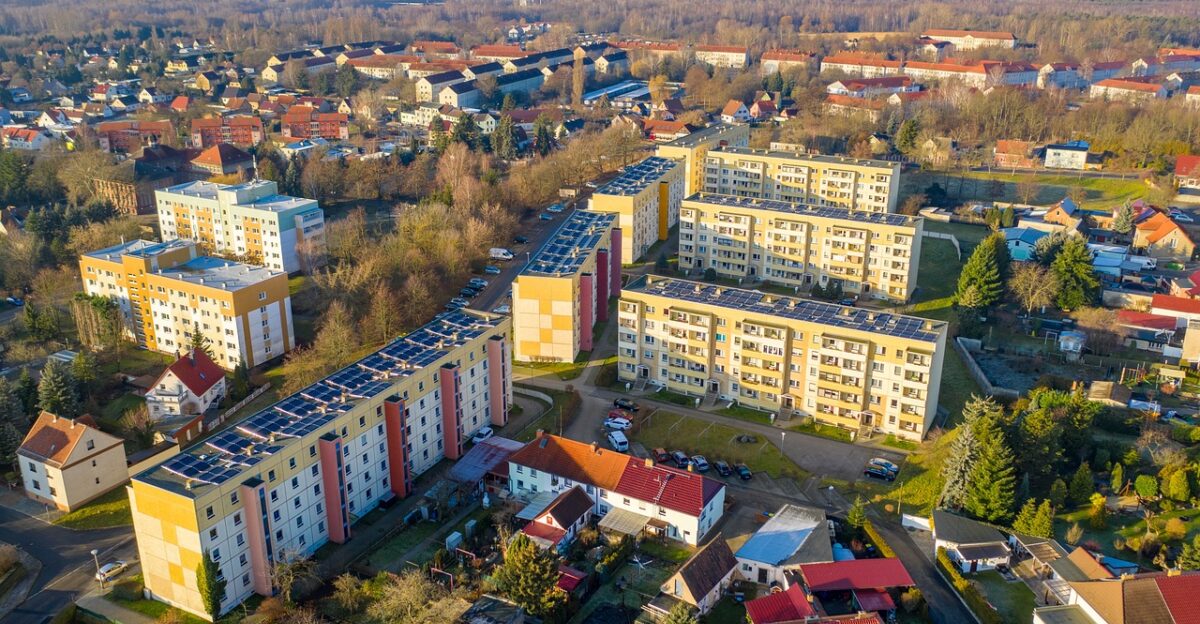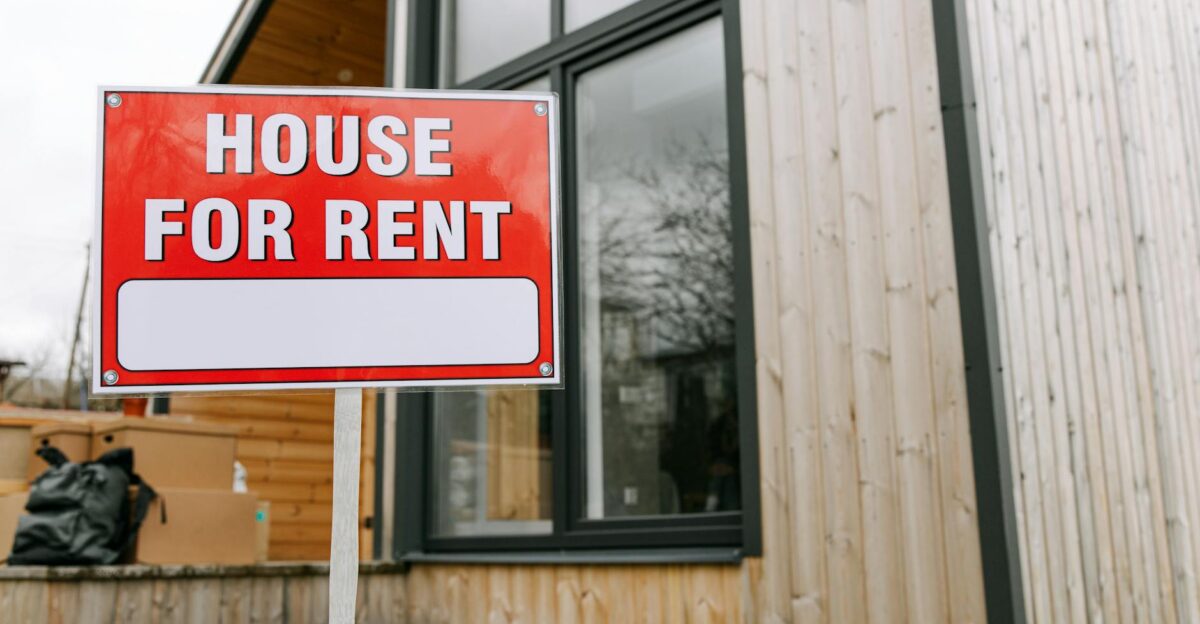
Seven major corporate landlords now own 51,252 single-family homes across the 21-county Atlanta metro area, according to research from Georgia State University and Rutgers University.
This concentration represents a dramatic shift from traditional mom-and-pop landlords to institutional investors managing thousands of properties simultaneously. The transformation accelerated after the 2008 foreclosure crisis, when corporate buyers accumulated distressed properties at an unprecedented scale.
Corporate Ownership Reaches One-Third of Market

Institutional or corporate investors now own approximately 30% of all single-family rental homes in the metro Atlanta area, according to recent data analysis.
This percentage substantially exceeds most comparable U.S. metro areas, positioning Atlanta as a key testing ground for corporate rental expansion. The rapid consolidation over 15 years has fundamentally altered the city’s housing dynamics and renter’ populations’ relationship to their homes.
The Big Three Companies Control Core Counties

Three corporate giants—Invitation Homes, Pretium Partners (which operates Progress Residential), and Amherst Holdings—own over 19,000 rental homes across Fulton, DeKalb, Gwinnett, Cobb, and Clayton counties.
This represents approximately 11% of all available single-family rentals in these core counties. The concentration gives these three companies substantial influence over rental pricing, lease terms, and neighborhood housing availability across Atlanta’s most populous regions.
Meet the Market Leaders

Invitation Homes operates as the largest single-family rental company in America, with a major presence in Atlanta. Progress Residential, backed by Pretium Partners, manages thousands of Atlanta-area properties.
Amherst Holdings rounds out the top tier. These firms operate multinational property management operations with standardized systems, pricing algorithms, and corporate governance structures that fundamentally differ from independent landlord operations.
Shell Companies Obscure Real Ownership

Research from Georgia State University and Rutgers University documented that corporate landlords use over 190 shell LLCs registered across just 74 addresses to obscure ultimate ownership.
This opacity makes it nearly impossible for tenants, local journalists, or government officials to determine who actually owns their rental property. The complex structure shields parent companies from direct accountability and complicates transparency regarding property maintenance and tenant rights.
Layered Ownership Creates Accountability Gaps

When rental homes are owned through multiple shell LLCs and managed by professional companies, tenants face fragmented responsibility structures. Property managers handle day-to-day operations, regional supervisors oversee multiple properties, and corporate headquarters remain insulated from direct tenant contact.
This layering means tenants often cannot identify who has authority to approve repairs, negotiate lease terms, or resolve disputes—creating frustration and delayed responses.
Research Confirms Higher Eviction Rates

Academic research published in peer-reviewed literature indicates that institutional and large corporate landlords file eviction notices at significantly higher rates than small independent landlords.
This pattern holds across multiple markets and timeframes. The higher eviction rates reflect a business model emphasizing standardized procedures and loss minimization over individualized tenant negotiations, creating greater housing instability for vulnerable families and communities.
Tenant Negotiating Power Diminishes

Individual renters increasingly confront billion-dollar corporations with sophisticated legal departments and standardized, non-negotiable operating procedures.
Unlike negotiating with local landlords who might consider individual circumstances, corporate tenants face identical lease terms, uniform rent increase policies, and minimal flexibility. This structural power imbalance leaves families with limited options: accept the terms, relocate at a significant expense, or pursue legal action that they likely cannot afford.
Data-Driven Pricing Optimizes Corporate Returns

Corporate landlords utilize sophisticated revenue management software to analyze market data, competitor pricing, and demand signals, thereby optimizing rental rates. These systems automatically adjust rents upward when market conditions permit.
Unlike traditional landlords who might consider tenant longevity or community stability, algorithmic systems prioritize maximum revenue extraction. Tenants frequently face unpredictable and sometimes steep rent increases at lease renewal, as documented in multiple tenant surveys and rental market analyses.
Maintenance Delays Create Tenant Hardship

Tenants in corporate-owned properties frequently report delayed maintenance and difficulty obtaining repairs, according to community surveys and tenant advocacy documentation.
The corporate structure channels maintenance requests through automated call centers and ticketing systems rather than direct communication with property owners. Critical repairs—including plumbing, electrical, and HVAC issues—can languish for weeks while families live in substandard conditions, creating health and safety concerns.
Corporate Buying Eliminates Entry-Level Homeownership

Corporate investors removed thousands of potential starter homes from the ownership market by purchasing them as rental assets after 2008. First-time homebuyers now compete against institutional investors offering all-cash, above-asking-price bids, making ownership financially impossible for many families.
This corporate accumulation contributes to declining homeownership rates in Atlanta, particularly affecting Black and Latino families already facing systemic barriers to property ownership and intergenerational wealth-building.
Neighborhoods Become Transient Rental Zones

When corporate landlords achieve neighborhood dominance, community dynamics shift measurably. High tenant turnover reduces neighborhood stability and social connections. Absentee corporate ownership means that no local stakeholder is invested in the neighborhood’s well-being or improvement.
Schools experience increased student mobility and resource challenges. Civic participation declines as residents lack long-term investment in community life. Stable homeownership communities gradually transform into transient rental zones with reduced community cohesion.
Corporate Model Treats Housing as Financial Asset

Corporate landlords purchase homes using institutional investment capital from pension funds, insurance companies, and wealthy investors seeking steady financial returns. They rent properties at market rates, using economies of scale to reduce per-unit operating costs. Investor returns come from rental income and property appreciation.
The model requires perpetually rising housing prices and rents to succeed. Under this system, families’ basic need for housing becomes a financial instrument generating dividends for distant investors rather than serving community housing needs.
Georgia Laws Favor Landlord Interests

Georgia’s tenant protections are among the most minimal among U.S. states. The state has no rent control limits on increases, eviction processes strongly favor landlords, and security deposit regulations provide limited tenant protection. Corporate landlords deliberately operate in this regulatory environment to maximize profits and minimize tenant protections.
Advocates argue stronger protections—including just-cause eviction standards, limits on rent increases, mandatory lease renewal terms, and ownership transparency requirements—could rebalance power, but face significant political resistance from business-friendly state lawmakers.
Federal and State Investigations Accelerate

U.S. Senator Jon Ossoff launched a formal investigation into out-of-state corporate landlords operating in Georgia, examining rent increases, eviction practices, and market concentration among institutional investors. His office gathered testimony from affected tenants and reviewed business practices.
The investigation signals growing political attention to corporate landlord practices at the federal level. Simultaneously, Georgia state policymakers have begun discussing potential regulatory responses, though concrete legislative action remains uncertain and faces industry opposition.
Justice Department Targets Algorithmic Pricing

The U.S. Justice Department sued RealPage, a major real estate software company, for allegedly facilitating anticompetitive algorithmic pricing coordination among landlords. The lawsuit alleges that property management software enabled participating landlords to share sensitive pricing information and coordinate rent increases.
This federal action validates concerns about algorithmic pricing in the rental market and signals government scrutiny of corporate landlord practices—potentially influencing how companies operate in Atlanta and nationally.
Atlanta’s Market Reflects National Patterns

Atlanta’s 30% corporate ownership rate substantially exceeds most U.S. metros but mirrors experiences in Phoenix, Las Vegas, Tampa, and other growth markets. These metros experienced similar institutional investor surges following the 2008 foreclosure crisis.
However, Atlanta’s rapid population growth, relatively affordable home prices, and landlord-friendly legal environment made it particularly attractive to corporate investors. The city effectively became a testing ground for the single-family rental industry’s expansion model.
Tenants Organize for Collective Power

Renters increasingly organize tenant associations to collectively negotiate with landlords and share information about practices and rights. Documenting all communications, maintenance requests, and expenses creates records for potential disputes or legal action. Understanding lease rights and local ordinances helps tenants identify violations.
Supporting tenant-friendly political candidates and policy advocacy can drive systemic change. While individual tenant power remains limited against billion-dollar corporations, collective action and political engagement offer meaningful paths toward greater protections.
Policy Solutions Face Implementation Barriers

Advocates propose requiring corporate landlord registries for transparency, implementing just-cause eviction protections, and establishing rent stabilization measures to promote fairness and stability in the housing market. Some suggest imposing tax penalties on large-scale investor ownership or offering incentives for converting corporate rentals back to owner-occupied homes.
Federal intervention through financing regulation or antitrust enforcement could theoretically limit market concentration. However, implementing these solutions requires overcoming significant political obstacles and powerful industry lobbying in business-friendly Georgia and nationally.
The Verified Reality and Path Forward

Corporate landlords have substantially transformed Atlanta’s rental market, now controlling tens of thousands of homes and wielding significant power over housing access, pricing, and eviction practices. Seven companies control 51,252 homes; three companies control 19,000+ homes in core counties—these verified figures demonstrate the scale of institutional investor dominance.
The concentration creates genuine challenges: higher eviction rates, reduced homeownership opportunities, and neighborhood destabilization. Addressing these challenges requires greater transparency about ownership, stronger tenant protections, and policy responses that rebalance power between corporate entities and families seeking stable, affordable housing.